Since Steven Pacheco returned to college three years ago, he has landed research and business fellowships, gotten elected student council president, and will join global leaders abroad to discuss human rights.
That’s the kind of drive two drug-related arrests and a year behind bars has given him.
“I have focus and I have purpose and I understand how to navigate the environment a lot better,” said the 28-year-old junior at John Jay College of Criminal Justice, part of the City University of New York.
It also helps to work with a team of well-regarded instructors and industry professionals who frequently tap his insight on criminal reform to get the perspective of a young black man.
“Nobody comes to the 'hood looking for talent, you know? But here, in college, the dynamics change,” he said.
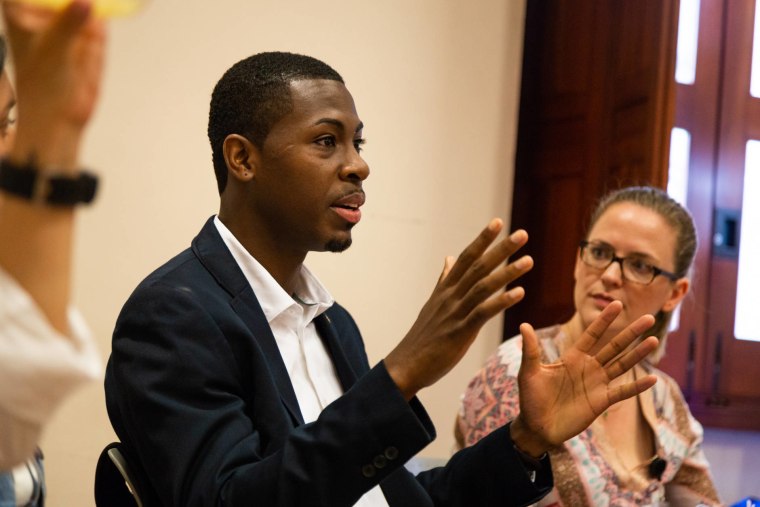
Just months after his release from prison, Pacheco returned to school in 2015 and began “filling out applications like crazy,” including one for a fellowship with the nonprofit Vera Institute of Justice. He got the position and used it to research best practices for helping incarcerated youth to re-enter society. His work led him to speak on panels and forums about incarceration, rehabilitation and the people who make up the prison population.
“That changed my life. Once I became a fellow, they knew who I was on campus,” he said.
And he hasn’t let go of the spotlight since.
“Nobody really wants to talk about being incarcerated because of the stigma. I talk about it because of the privilege I have just in how I can articulate myself,” he said. “I have a status that a lot of formerly incarcerated people don't have, so I can talk about it and still be seen as human to some people.”
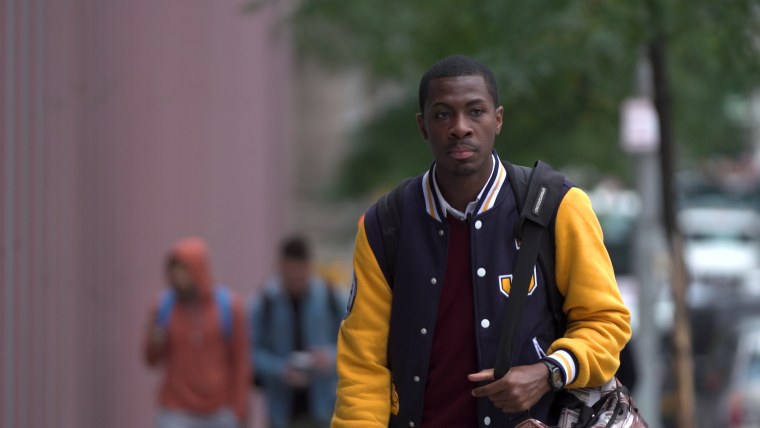
Born in Dallas, where his parents met — and then split — Pacheco was raised in New York by his mother and her family. He grew up mainly in the Bronx, where he avoided major trouble during his youth, despite the area he called home.
“The neighborhood that I come from, people go to jail like the way people go to school,” he said.
Pacheco originally enrolled in John Jay after finishing high school in 2008. He soon dropped out and picked up a string of retail jobs that barely paid his living expenses. A run-in with an old neighborhood friend eventually led him to selling drugs, mostly crack cocaine.
Pacheco was first arrested in 2012 but avoided jail time after agreeing to complete a treatment program. But a second drug-related arrest a year later landed him behind bars, transferring between several New York facilities, including Rikers Island, for the next year.
“Being incarcerated you have to have this extra grit that I don't think anybody's naturally born with. The environment kind of cultivates that in you, because you have to survive,” he said.
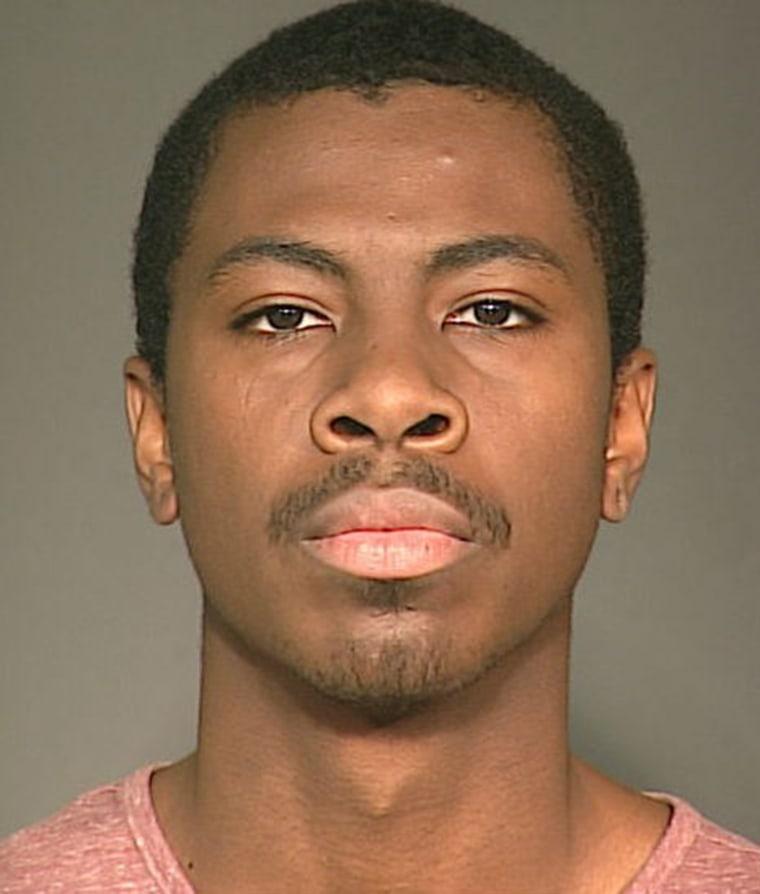
“You have correctional officers who are talking down on you. They're trying to break your spirit."
Nearly three months into his sentence, while in solitary confinement, Pacheco received a call informing him his grandmother had passed away.
His relationship with her had been contentious. She was a strict disciplinarian, unlike his more nurturing, progressive mother. But his grandmother was the one who supported the family financially while his mother struggled with addiction problems. His grandmother eventually stopped working because of complications from diabetes and Alzheimer’s.
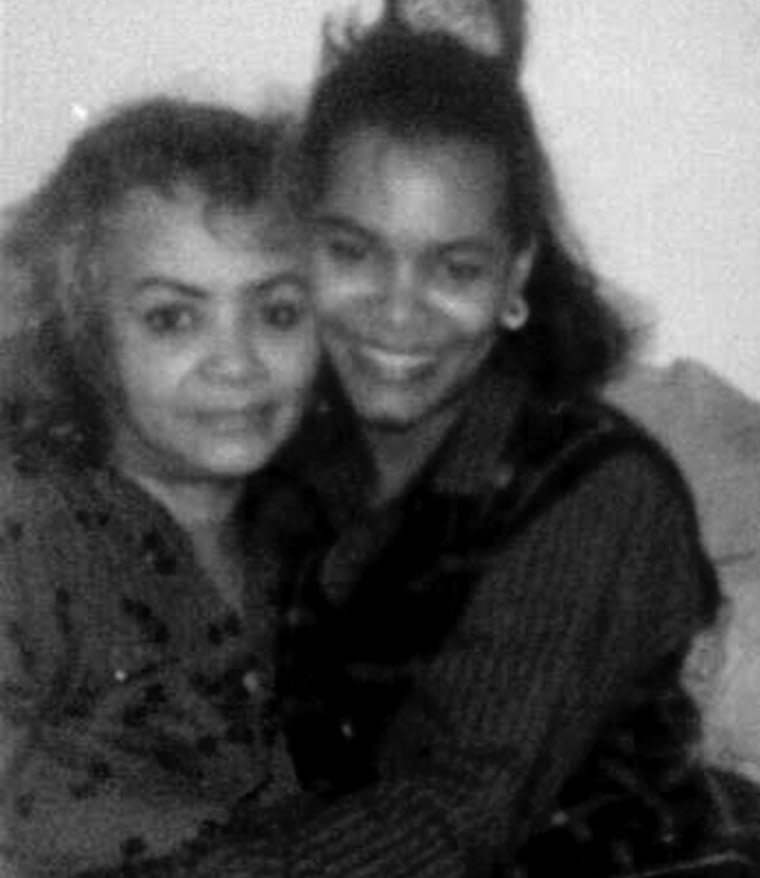
“When she would remember me, the last memory she has of me is incarcerated or in the streets,” he said. “I'm a very spiritual person, and I believe she's still looking down on me. She always told me that I should become a lawyer. That was the motivating factor while I was incarcerated.”
Pacheco walked out of jail on Aug. 4, 2014. He was back at John Jay the following January.
One of the first people he reached out to at the school was a former professor, Carmen Solis.
“Immediately, there was a change in him,” she said. “Now he was not only interested in what was going on in the school. He had a mission to really advocate for formerly incarcerated people.”
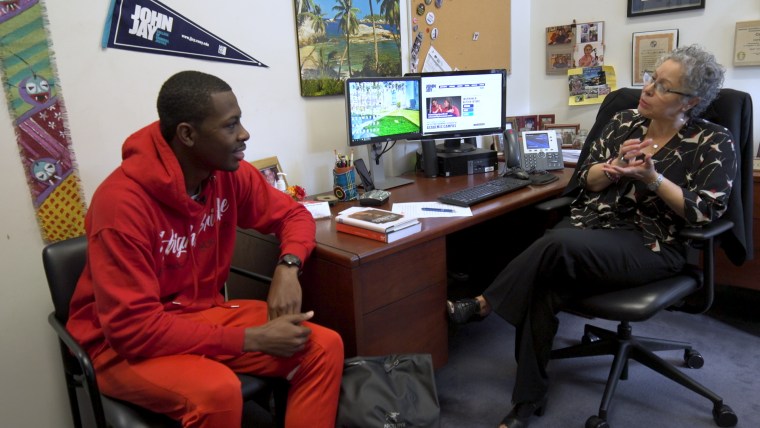
Pacheco’s criminal record isn’t that unusual among John Jay students, said Charles Davidson, director of the school’s Pre-Law Institute and Center for Post-Graduate Opportunities.
“What is unique is how Steven has an uncommon vision for himself and a seriousness of purpose. Steven has this clarity and a real drive,” Davidson said.
That drive directed him to leadership roles and the Ron Moelis Social Innovation Fellowship, which led to the creation of a mobile app he and two other classmates are working on to help match employers with formerly incarcerated workers. Pacheco, who is majoring in social thought, said he hopes to expand the app, which won a social innovation competition, after graduation.
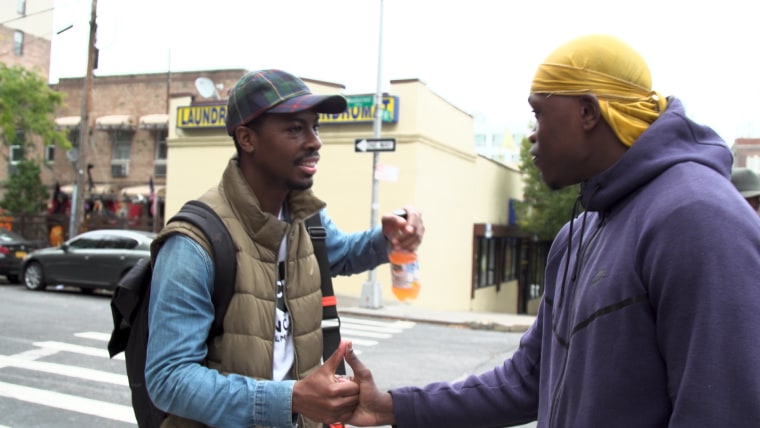
He’s not sure if he’ll pursue law school after graduation, although he has a firsthand view of that world through his girlfriend, a first-year Harvard law student he met through their social justice activism work.
He does know he wants to continue fighting for the rights of people behind bars.
“I know this from being incarcerated. Some of the dopest, most progressive, impactful ideas are literally locked behind cages,” he said.
“I'm so proud of where I come from. It made me who I am in a lot of ways, for better and for worse. It made me ready for everything that I'm up against now.”
